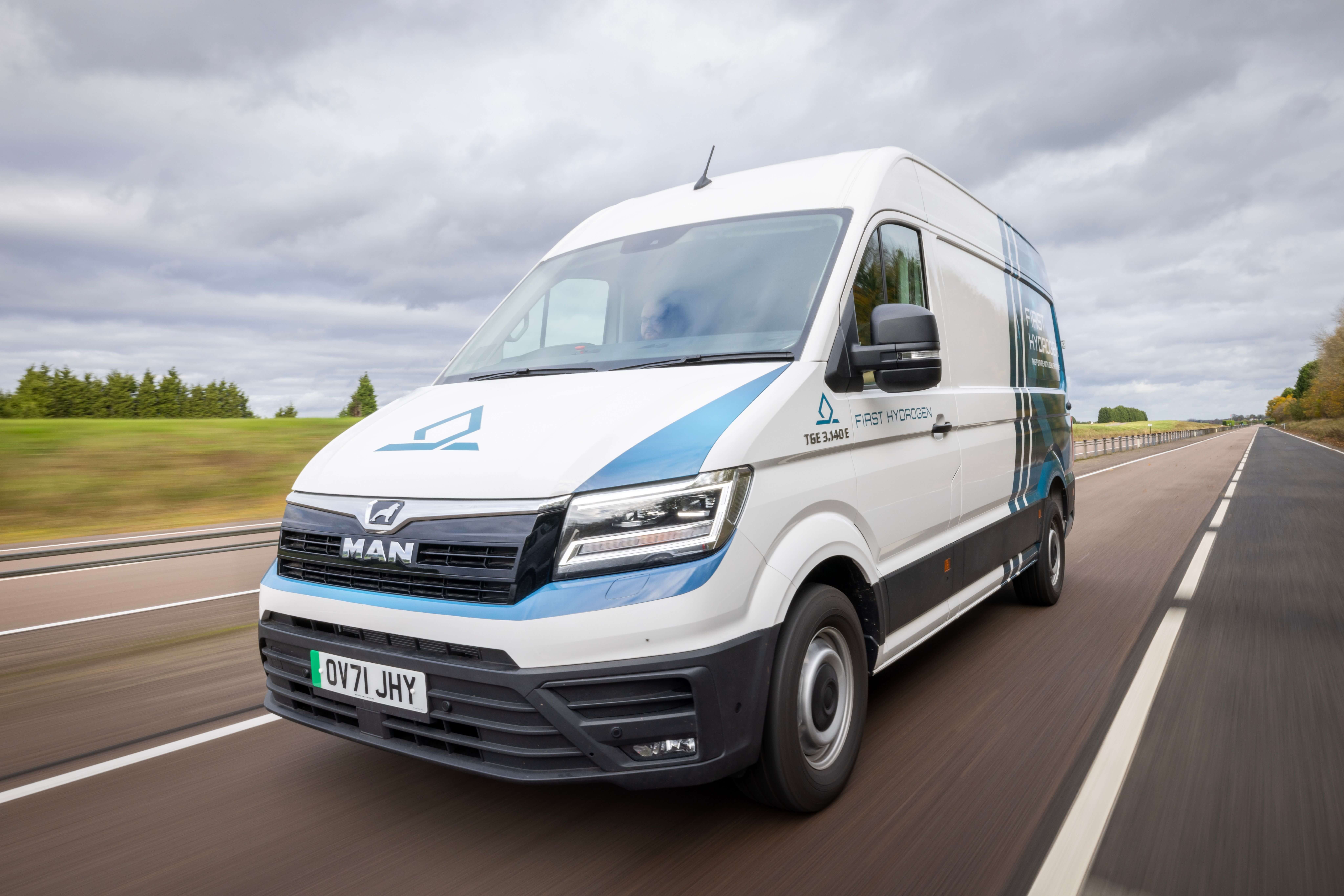Accolade from Amazon
The fact that the new partner tested First Hydrogen's light commercial vehicles powered by hydrogen fuel cells is akin to an accolade. None other than Amazon, by far the world's largest online retailer, tested the fuel cell electric vehicles under real-life delivery service conditions in London. A total of 1,547 stops were made, and 3,462 parcels were delivered in shifts of between 8 and 10 hours.
The test drivers reported that the light commercial vehicles worked well. At the end of the day, the telematics data was analyzed by Amazon's data science team to evaluate the performance under various conditions. In particular, start-stop operation and the influence of driver behaviour on energy efficiency and recovery provided the data analysts with real measurement values. This resulted in an estimated range of 397 km on a single tank of fuel, although engineers at First Hydrogen assume that this can be increased to up to 450 km through further optimization. Compared to battery-powered commercial vehicles, the range of First Hydrogen's vehicles is therefore well ahead.
In order to maximize performance and payload, the design and predictive behaviour were optimized following the tests. The Company's AI algorithm will incorporate data such as delivery stops, traffic information, weather conditions and driving behaviour to improve vehicle efficiency and determine delivery routes in advance.

Major German automotive company on board
As we mentioned in our last update, interest is growing in North America due to the positive tests held in the UK with global players such as Rivus, SSE PLC and the Wales & West Utilities gas supply network as well as Amazon, and the record ranges of 630 km.
In order to meet the potential high demand, CEO Balraj Mann signed a non-binding letter of intent to secure the supply of electric vans from a major German automotive group, which has not yet been named. First Hydrogen's fuel cell powertrain is to be installed in the German brand's vans. The LOI also includes access to the vehicle manufacturer's technology, support and certification.
This will enable the Company, which is based in London, Montreal and Vancouver, to offer interested fleet operators a needs-based small van with a hydrogen fuel cell drive in the future and to start commercialization.
What is the share price doing?
Despite the outstanding news, the share price has not yet been able to escape the general correction in hydrogen fuel cell stocks on the stock market. The innovator, valued at just CAD 45.19 million, has fallen by around 80% to CAD 0.91 since its highs in the summer of 2022. The development of the trend-following indicator MACD and the relative strength indicator RSI remains positive. The MACD has not confirmed the price lows since October of last year and has formed several positive divergences. The shorter-term RSI has been signaling a potential trend reversal since March of this year.

Conclusion
Once again, First Hydrogen was able to report two milestones. The tests by drivers from online giant Amazon under real-life conditions and the signed letter of intent with a major German automotive group to meet the growing demand for commercial vehicles powered by hydrogen fuel cells go hand in hand with the Company's vision of being able to produce and deliver between 10,000 and 20,000 units of the First Hydrogen Utility Van per year from 2026. Assuming only the lower limit of 10,000 vehicles and a unit price of around EUR 50,000, turnover would be EUR 500 million. In comparison, the market capitalization of First Hydrogen is around EUR 30 million.
This update is based on the initial report 07/2022

